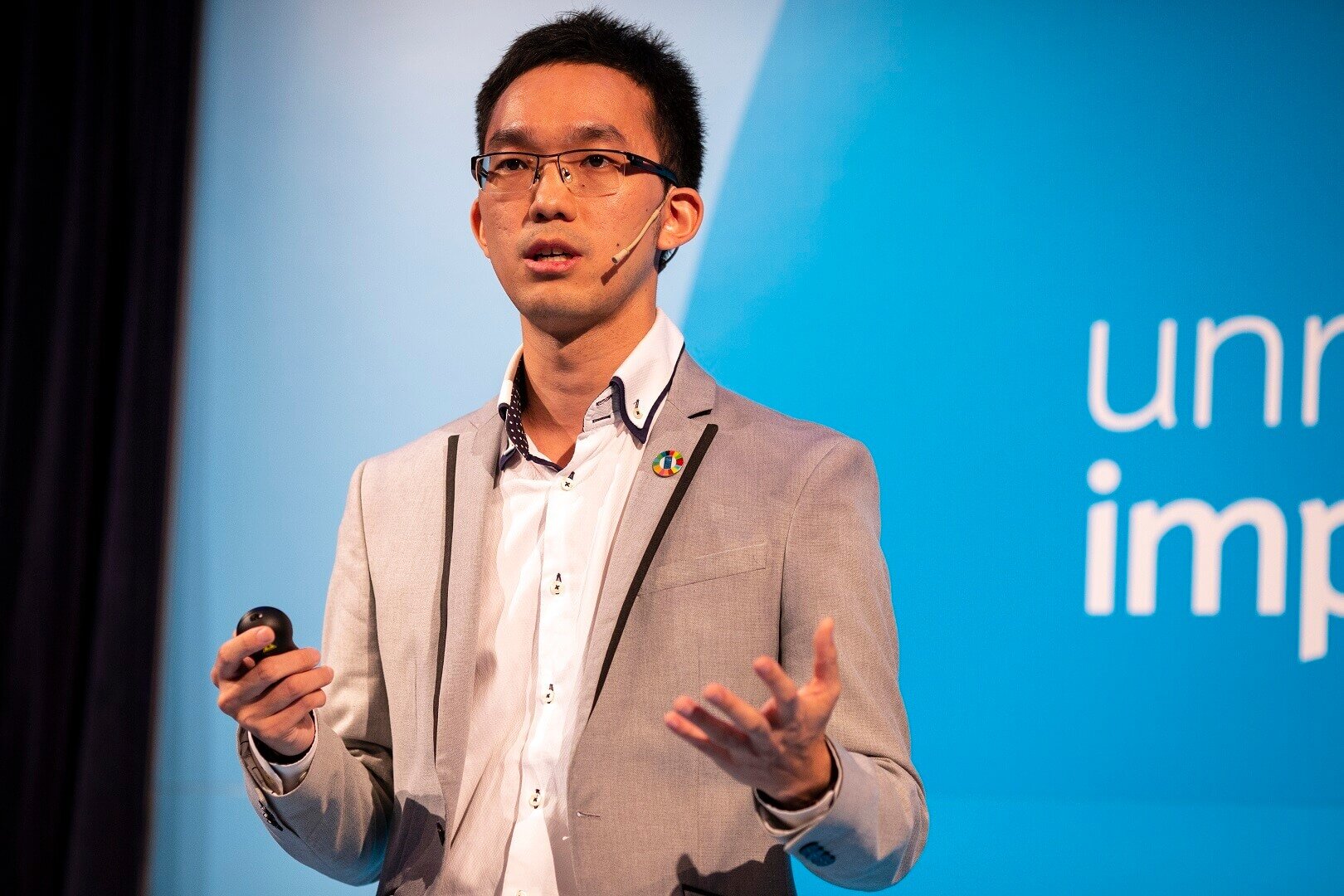
Grow With IP: In Conversation With EverComm CEO, Ted Chen

Our new ‘Grow With IP’ series brings you fresh, actionable insights on intellectual property (IP) and intangible assets (IA), straight from the C-suite.
From Green To Gold
EverComm is an energy artificial intelligence start-up that helps governments and enterprises transition into net-zero operations in a cost-effective and scalable way. It is accredited by the Infocomm Media Development Authority (IMDA) and part of Enterprise Singapore’s (ESG) Scale-up SG programme.
Ted is the youngest to receive the prestigious Singapore Energy Award and has been recognised as one of the digital pioneers by the Singapore Committee on the Future Economy (CFE).
Q1
EverComm built a successful business model around IP and IA. Many start-ups often focus on operations and leave intellectual property (IP) and intangible asset (IA) matters in the back seat. What spurred you to focus on IP and IA from the beginning?
Ted: While a company’s valuation used to be largely supported by tangible and fixed assets, IA has played an increasingly significant role whenever we talk about the value of a business – especially for those that leverage technologies to offer their products and services. So we knew we had to recognise and appreciate the importance of protecting and commercialising our IA from the beginning
Read also: Harnessing IP in Today's Digital Economy
Q2
You have successfully aligned your IA strategy into your business strategy, recognising IA as a key growth driver. How has EverComm benefited from this move?
Ted: For EverComm, an IA strategy effectively communicates our vision and commercial value to our collaboration partners. Over the years, we have partnered with R&D players globally to develop cutting-edge energy services and products. We have experienced first-hand how a good IA strategy enables us to plan our resources more efficiently, protect new IA created in the collaboration, and generate additional revenue streams. This was especially important when it came to aligning our market expansion and customer acquisition strategies, such as setting up joint ventures (JV) or new product brands. Some even eventually became investors to leverage our IA strategy and further co-create value.
Read also: Two-way relationship between a business plan and an IP strategy
Q3
What are the main challenges you have faced growing EverComm as an IA-focused company?
Ted: To be frank, our journey wasn’t all smooth. It took a while to convince and show the industry leaders how IA can create value at scale, since they already had stable business models relying on fixed and tangible assets generating revenue and anchoring their market capitalisation. It was through utilising IPOS’ resources and working with IPOS International that we learnt how to leverage our strengths and demonstrate R&D outcomes with an IA perspective. This helped greatly in establishing our first JV with a publicly-listed company. Over time, this perspective has increased the value of our JV in a sustainable way.
Read also: Four Main IP Pathways Businesses Can Prioritise
Q4
Now that EverComm has a strong foothold in its IA game, what’s your next move?
Ted: We’re currently expanding into different markets and sectors, and we intend to constantly fine-tune our IA strategy to ensure that the value of our technology is accurately captured. IA will also continue to be vital to increasing our market position in terms of valuation and improving our business model over time. Moving forward, our IA strategy will mainly focus on realising the commercial value of the existing IA that we’ve co-created with these industry leaders.
Q5
Last but not least, what practical advice would you give to fellow start-ups who may believe that they are too new to even be thinking about leveraging IA?
Ted: All companies should pay more attention to their IA strategies from the very beginning, no matter their size, position, or industry. A solid IA strategy not only eases processes from a legal perspective, like registering IP or avoiding IP infringement, but also captures the commercial value of IA more holistically. Yields include efficiency, such as reducing operational expenses through strategic IA alignment, as well as value creation through generating additional revenue streams. Ultimately, an IA strategy will enable you to scale your company.
Read also: IP Playbook for Going Global
Takeaway
IPOS International IP Strategist Ye Thu Aung weighs in on EverComm’s experience:
Many start-ups, including high-tech, artificial intelligence companies, have yet to acquire EverComm’s level of appreciation for the importance of IA. Some may not have clear IA ownership positions nor systems in place to manage their IA, branding and trade mark strategies. Others run into legal issues or come to a business standstill at a certain point.
It is a myth that dealing with IP is prohibitively expensive. Start-ups can easily and cost-effectively manage and protect their IP and IA even with limited resources, to maximise the value of their IA. For example, companies can identify the right form of protection for their inventions based on their budgets (patents can be costly compared to trade secrets). A right-sized strategy can also consider commercialisation options.
Read also: How Effective IP Management Can Help Your SME
While there is no single approach to crafting an IA strategy, taking first steps in the right direction can build a great foundation for developing an IA strategy over time:
1. Review your business strategy through the lens of building and leveraging IA
2. Identify the key IA that establish competitive advantage in the market
3. Consider IA management sooner rather than later – it can be as simple as first being aware of how your key IA can be protected



Book a complimentary chat with us to learn how you can leverage on your IP. test
Book IA Chat Session